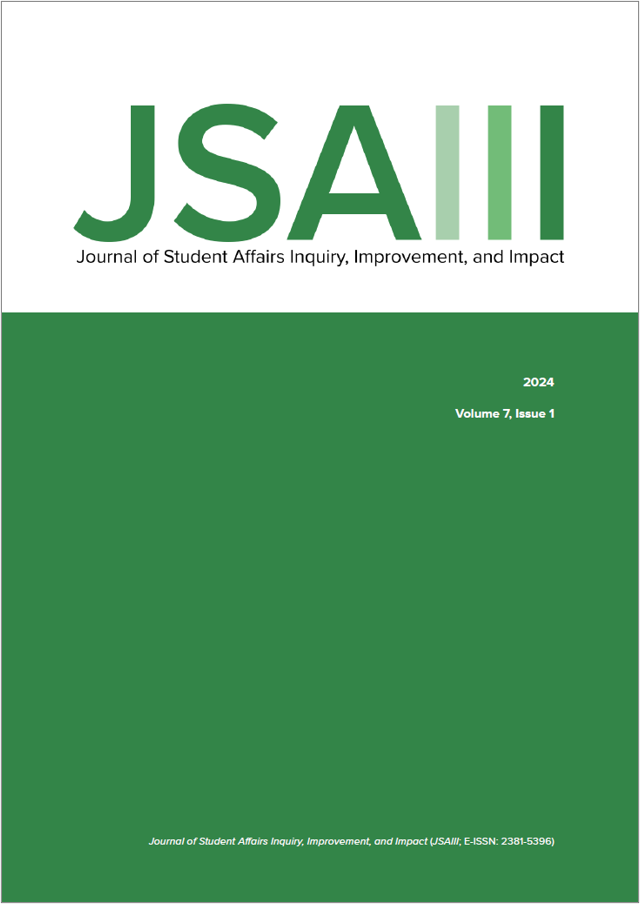Revisiting Accreditation Standards and the Impact on Student Affairs
DOI:
https://doi.org/10.18060/27994Keywords:
accreditation standards, regional accrediting bodies, institutional accountability, quality assurance, colleges and universities, student affairsAbstract
This manuscript focuses on the role of student affairs in a changing accreditation environment. We update and extend our argument (Gordon et al., 2019) to first, note changes in accreditation standards (especially those involving student affairs work), and second, describe how student affairs might engage in praxis to ensure coordination and alignment with the overall student success goals set forth by accreditors. After reviewing changes in the standards, we interviewed three student affairs assessment practitioners from different accreditation environments to contextualize changes in real experiences. Key findings include a shift in accreditation standards towards institutional responsibility for student outcomes, a greater emphasis on diversity, equity, and inclusion, and a need for student affairs professionals to adapt to these changes. Practitioners and student affairs scholars are called to pay closer attention to the accreditation landscape and its impact on student affairs on our campuses. The ability of student affairs educators to be nimble with their work and how it applies to students’ needs is paramount in the coming accreditation cycles. Implications for student affairs and other professionals include responses to broader pressures on higher education such as enrollment, workforce, budget, and economic development.


